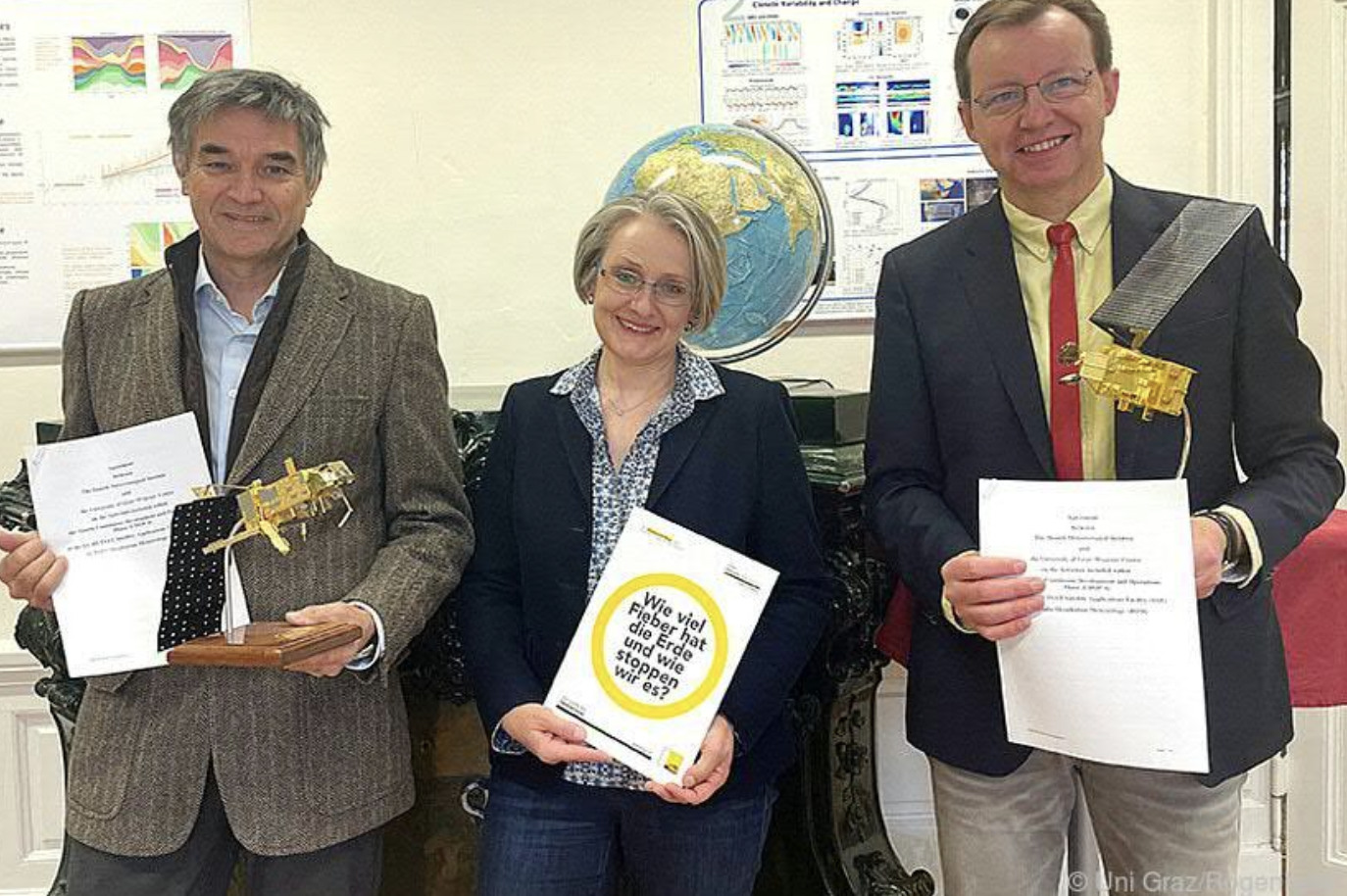Satellite organisation Eumetsat brings Graz University into centre of excellence
To research global climate change, scientists observe, among other things, the changes in the physical properties of the gaseous envelope above the earth's surface, the atmosphere. Climate experts at the University of Graz use the method of so-called radio occultation for this purpose. Eumetsat, the European organisation for the use of meteorological satellites, has now brought the Graz experts on board for one of its centres of excellence, the University of Graz announced.
Just as light is refracted during the transition from the optically thinner to the optically denser medium, a radio signal is also changed when it passes through the atmosphere. The effect - the phase shift of the radio signals - is measurable and can provide information about the nature of the atmosphere.
This is also the basic principle of GPS radio occultation. In this process, satellites in a low Earth orbit (400 to 800 kilometres) receive GPS signals from a transmitter satellite at an altitude of around 20,000 kilometres. When these pass through the Earth's atmosphere, the atmosphere changes the phase, amplitude and polarisation of the signal. From the signal patterns obtained, conclusions can be drawn about the density, pressure and temperature of the atmosphere in a certain altitude range.
Graz researchers improved occultation method
Researchers at the Wegener Center in Graz have been able to significantly improve the method for remote sensing of the global atmosphere in recent years. Within the framework of the Eumetsat Centre of Excellence ROM SAF (Radio Occultation Meteorology Satellite Application Facility), they are now contributing their relevant expertise. As a turbo for further research in this field, Eumetsat together with the Austrian Research Promotion Agency (FFG) are providing 840,000 euros for the next five years. The University of Graz will contribute another 560,000 euros of its own. After the first period and an evaluation, there is an option to extend the programme for another five years, the university said. Andrea Steiner, head of the Wegener Center, will serve as the University of Graz's representative on the ROM-SAF steering committee.
"It has been a challenging path in international competition with multi-stage preliminary projects and peer reviews. I am thrilled and grateful that we have reached this milestone, which will significantly strengthen our research on global climate change for a decade to come," said a delighted project manager Gottfried Kirchengast from the Wegener Center, who is leading the team from the University of Graz.
Eumetsat is the European operational satellite agency for monitoring weather, climate and environment from space. Based in Darmstadt, the organisation is currently funded by 30 Member States, including Austria. The data and products from the Eumetsat satellites are crucial for weather forecasting and make a significant contribution to monitoring the environment and climate change. The satellite agency operates Meteosat -9, -10 and -11 over Europe and Africa and Meteosat-8 over the Indian Ocean, among others. The European Union has also contracted Eumetsat to operate the four Sentinel missions of the Copernicus Space Component, dedicated to monitoring the atmosphere, ocean and climate on its behalf.

